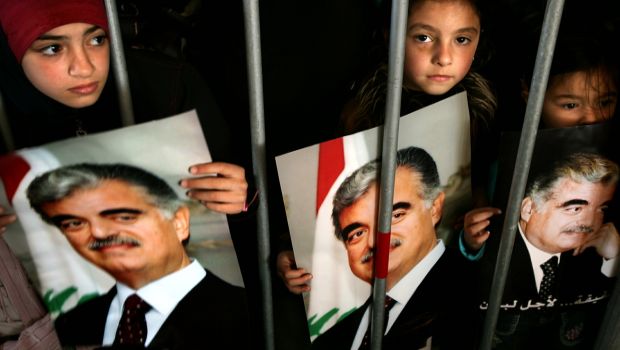
Lebanese girls hold pictures of former Prime Minister Rafik Hariri as they visit his grave in Beirut’s Martyrs Square.
(Reuters/Damir Sagolj/Files)
United Nations, AP—Secretary-General Ban Ki-moon authorized a three-year extension Friday of the mandate for the UN-backed tribunal prosecuting suspects in the 2005 assassination of former Lebanese Prime Minister Rafik Hariri.
The suicide truck bomb that killed Hariri and 22 others including the bomber was one of the Middle East’s most dramatic political assassinations. Hariri, a billionaire Sunni businessman, was Lebanon’s most prominent politician after the country’s 15-year civil war ended in 1990.
Four Hezbollah members were charged in 2011 with plotting the attack on February 14, 2005 but have not been arrested. Their trial in absentia began in January 2014 and is ongoing near The Hague, Netherlands.
Hezbollah denies involvement in the murder and the group’s leader, Hassan Nasrallah, has denounced the court as a conspiracy by his archenemies—the US and Israel.
UN deputy spokesman Farhan Haq, who announced the mandate extension until March 1, 2018, reaffirmed Ban’s commitment to support the Special Tribunal for Lebanon “to bring those responsible to justice and to ensure that impunity for such major crimes will not be tolerated.”
“The United Nations looks forward to the continued support and cooperation of the government of Lebanon,” Haq added.
Syria initially was suspected of involvement in the assassination, because Hariri had been seeking to weaken its domination of Lebanon. Syria has denied any role, but the killing galvanized opposition to Damascus and led to huge street demonstrations, dubbed the “Cedar Revolution,” which helped put an end to Syria’s 29-year military presence in its smaller neighbor.
